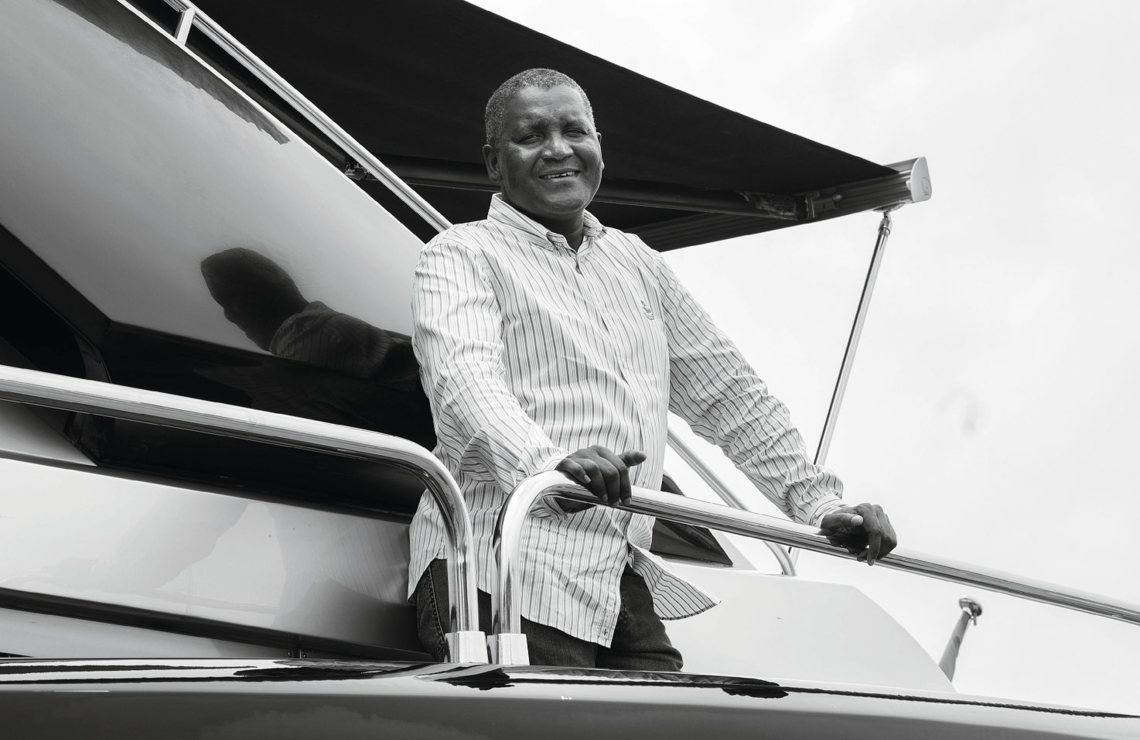
A land of wealthy philanthropists
As an oil producer with a huge domestic market, Nigeria has spawned some of Africa’s greatest successes, renowned for their generosity. Nevertheless, low taxes on huge earnings have fuelled much public debate.
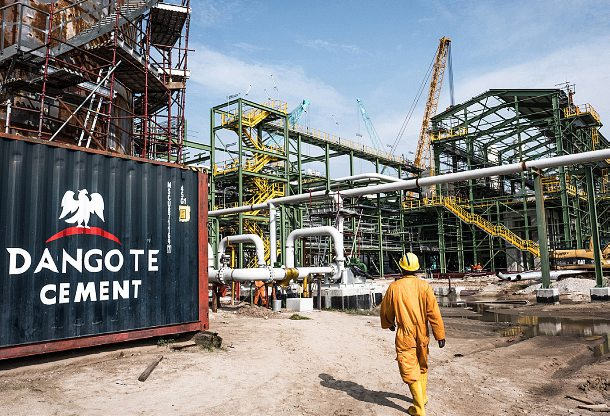
The 2023 Africa Wealth Report says Nigeria, Africa’s most populous country, has 9,800 millionaires, 27 “centimillionaires” (worth over $100 million) and four billionaires, the most famous of whom, Aliko Dangote, 66, is the continent’s richest person for the 12th conse - cutive year. Forbes Africa puts his estimated worth at $13.5 billion. The Dangote Group, which makes cement, fertilizer, rice, pasta, sugar, salt and even tomato sauce, posts four billion dollars in annual sales. The secret to its success is simple: “Meet basic needs.” Since 1981, the group has supplied Nigerians with everyday products they cannot do without, like food and cement to build their houses. The group’s strategy is “to become the biggest player in each industry where it’s active,” Afrinvest vice-president Robert Omotunde told Afrique Magazine in a long 2020 profile of Mr. Dangote [see no.401].
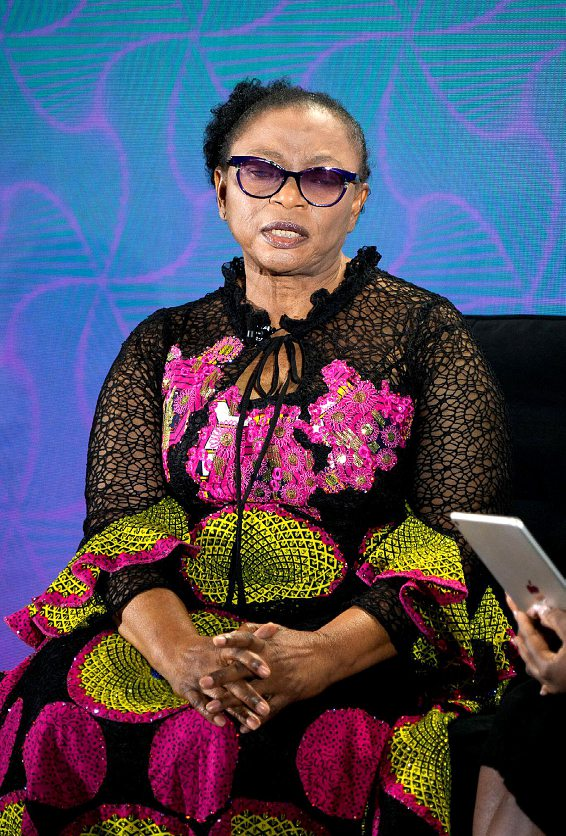
After striking it rich in the import-export business, in the 2000s Mr. Dangote set his sights on industrializing Africa’s largest economy and reducing its dependence on imports, which was harming its financial prospects. He built cement plants across the country and in May 2023 began work on the Lekki refinery, an over-2,000-hec - tare industrial complex set to become fully operational in late 2024 and end the paradox of the country’s being an oil exporter and a fuel importer. The aim is to «replicate what the Dangote Group has already achieved on the cement and fertilizer markets by turning Nigeria from an importer into a net exporter,» Mr. Dangote said at the ground-breaking cere - mony. The refinery is eventually expected to create 100,000 direct and indirect jobs. Folorunsho Alakija, who founded the luxury ready-to-wear brand Supreme Stit - ches, is another towering figure in Nige - ria’s business world. In 2012, she overtook Oprah Winfrey as the world’s richest black woman. After a career at the Internatio - nal Merchant Bank of Lagos, she studied fashion in London, returned home and began working in the apparel industry in the 1980s. But oil investments are what really made her business career take off: in 1993, she bought an oilfield and founded Famfa Oil Ltd, which was later sold to Texaco.
PROVIDING HELP
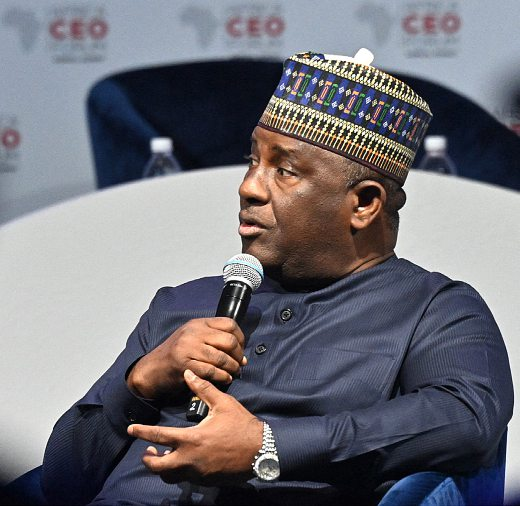
Abdul Samad Rabiu, Africa’s fourth-wealthiest man in the 2023 Forbes rankings, is worth an estimated $6.8 billion. Born in Kano, like Mr. Dangote, in 1988 he founded the BUA Group to import raw materials and export finished products. Listed on the Lagos stock exchange in 2022, BUA is active in cement, real estate and sugar and will invest $250 million in building a 130km motorway between Kano and Kongolam in the north. Like his main competitor, Mr. Rabiu advocates producing and locally processing natural resources. Mike Adenuga, CEO of mobile phone company Globacom (55 million customers) and Conoil, which sells fuel, is nicknamed the Gold Digger. But, overly dependent on the domestic market, he suffered from the naira’s slide and saw his wealth shrink this year by 43%, from $6.3 to $3.6 billion, says Forbes. Like many rich Nigerians, Femi Otedola ($2.7 billion) began his career in oil and gas (Forte Oil, Zenon) before reinvesting his profits in hotels and electricity (Transcorp Group, Geregu Power Plc). His daughters Florence, a DJ, and Temi, an actress, are celebrities. Tony Elumelu took a more offbeat path. A banker, he participated in the takeover of the endangered Crystal Bank, which became Standard Trust Bank before merging with United Bank for Africa (UBA) in 2005. In 2010, the champion of “Afro-capitalism” launched TEF, a foundation to promote entrepreneurship whose goal is to invest $100 million to support 10,000 entrepreneurs by 2025. So far, the TEF has helped over 9,000 people create their own companies in the continent’s 54 countries. In 2020, Time magazine named him one of the world’s most influential 100 people.
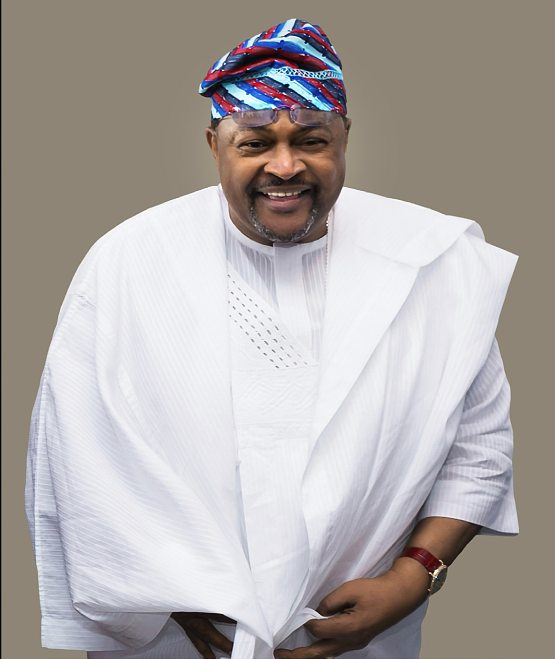
Mr. Elumelu is not the only one who harnesses his wealth to help the less fortunate. Philanthropy is part and parcel of Nigerian capitalism. Mr. Dangote said, “My goal is not to become the richest African, but the richest philanthropist.” All of them make substantial donations to hospitals or universities. Mr. Adenuga’s foundation gives away about $20 million in scholarships every year. Ms. Alakija’s foundation, Rose of Sharon, grants zero-interest loans to widows wanting to start their own businesses. They try to outdo each other’s generosity when disaster strikes in their country or neighbouring ones, like floods and during the Covid-19 pandemic.
BOOSTING TAX REVENUES
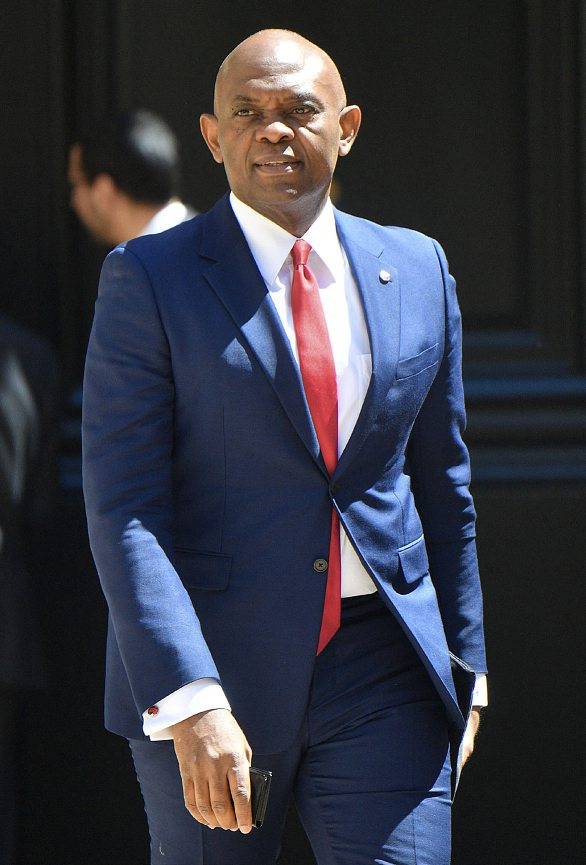
Despite undeniable philanthropic efforts, the amassing of huge fortunes does not sit well with everyone in a country where, according to the United Nations, 133 million citizens live in “multidimensional poverty” and many young people have no other hope but “japa”, i.e., moving abroad. In an April 24, 2023 article by the Nigerian online newspaper The Cable, economist Zuhumnan Dapel wrote that “social mobility has been stagnant in Nigeria for decades… One needs a large amount of money to buy a high-quality education; if your parents are poor, you cannot buy a private school education. And so, the children of the rich will always get well-paid jobs. This cycle reinforces and maintains the widening inequality of opportunity in Nigeria”, where the average income is $2,030 a year. And indeed, nearly all the billionaires and centimillionaires are offspring of already wealthy families or, in the case of Femi Otedola, a former governor of Lagos. Few really started from the bottom, as some do in the United States or even Kenya, where President William Ruto began as a street peddler. Another criticism is that “Nigerian billionaires choose to stay in the country due to disparities in tax rates compared to developed economies,” wrote Deborah Dan-Awoh in Nairametrics (“Why Nigerian billionaires do not ‘japa’”, July 2, 2023. “Some billionaires benefit from monopolistic businesses supported by the Nigerian government, while developed economies have antitrust laws that promote fair competition.” The percentage of GDP derived from tax revenue is 10.86% compared with an average of 18% in Africa. Aiming to improve the situation, President Tinubu plans to appoint a tax and tax policy reform commission chaired by economist Taiwo Oyedele. The goal is to reach 18% by 2026, which would bring an additional 20 trillion naira, or over $25 million, into public coffers.